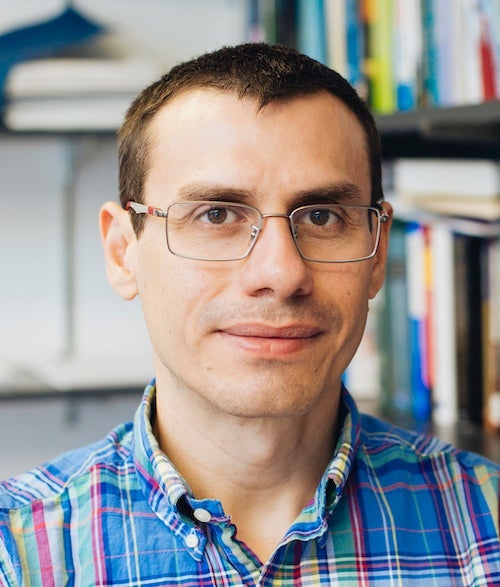Transforming CO2 into valuable products
Waterloo research team partners with BMO to turn pollution into renewable energy
An interdisciplinary research team from the University of Waterloo aims to tackle CO2 emissions in the value chain by transforming CO2 into valuable chemicals needed by industry.
Supported by BMO, the research focuses on the use of green hydrogen to capture CO2 from power plants as well as the iron, steel, and cement industries, and convert it into useful gases via reverse water gas shift reaction.
Led by Dr. Luis Ricardez-Sandoval, a professor of chemical engineering, the research team aims to develop a computational framework that will accelerate the design and discovery of novel materials that will facilitate the transformation of CO2 into useful industrial gases using atomistic modelling, advanced optimization, machine learning techniques and laboratory experiments.

Dr. Luis Ricardez-Sandoval, professor of chemical engineering at the University of Waterloo leads a research team transforming CO2 emissions into valuable products.
The computational framework can be adapted to address other global issues such as finding new materials to alleviate food insecurity or aiding industries in transitioning to lower carbon operations.
“This exciting project has the potential to discover high-performance materials that will not only promote a circular carbon economy but can also be adapted to facilitate the development of novel materials for other emerging applications including the renewable energy and electrification sectors,” says Ricardez-Sandoval.
The research team is made up of Dr. Aiping Yu and Dr. David Simakov, both professors of chemical engineering, Dr. Pascal Poupart, a professor of computer science, and Dr. Ricardo Fukasawa, a professor of combinatorics and optimization.
Overseen by Ricardez-Sandoval, the Multiscale Modelling Team receives the data from the group, which is expedited by machine learning combined with optimization under the supervision of Poupart and Fukasawa. Parallel laboratory experiments are conducted by advanced materials experts, Yu and Simakov, to validate the predicted results.
The computer science and optimization aspects of the research are especially novel and important since the search for new materials is fundamentally an optimization problem that is informed and accelerated by transferring knowledge from the design of related materials.
“Machine learning and optimization provide a new computational framework to accelerate the design of new materials”, says Poupart. “This computational framework improves over time. Like humans who gain expertise with experience, computers are trained to improve recommendations for new materials based on accumulating experience.”
A key intended outcome of the research project is not only to help address the problem of emissions from heavy industry, but to do so in a way that creates a useful byproduct. This enables sustainable industrial processes with smaller impact on the environment and the climate. This research is a win-win situation where advances in machine learning and optimization accelerate the design of new materials that reduce emissions while enabling better products for everyday life.
“This project is a great illustration of BMO’s Climate Ambition, to be our clients’ lead partner in the transition to a net-zero world,” said Sharon O’Sullivan, Managing Director, Architecture and Innovation, BMO. “It builds on BMO’s long-standing commitment to a sustainable future and is an example of how we partner with academic leaders like the University of Waterloo to help the communities we serve make progress by harnessing the power of machine learning and scientific innovation.”